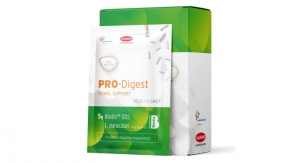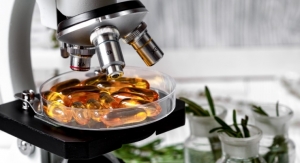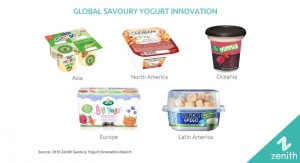08.04.15
The probiotic ingredients market is projected to reach $46.55 Billion by 2020, growing at a CAGR of 7%, according to a report published by MarketsandMarkets.
The market report defines and segments the market on the basis of function, application, end use, ingredient and region, with analyses and projections of the market size of each of these segments in terms of value (USD Million). It also identifies the driving and restraining factors with analyses of the trends, opportunities, burning issues, and winning imperatives.
As defined by FAO/WHO, probiotics are live microorganisms which when administered in adequate amounts confer a health benefit on the host and they must be alive to provide these physiological benefits. Probiotics may be described as live microbial food ingredients, which are beneficial to the consumers as they improve the intestinal microbial balance. The probiotic ingredients market in general and the probiotics functional food and beverages market in particular have been one of the prime beneficiaries in the latest trend of fortified and functional foods across the globe. With the advances in food technology, the requirement of probiotic ingredients has grown at a substantial rate.
Key market players adopted new product development, agreements, and expansions as their preferred strategies to sustain in the market.
The market is projected to reach $46.55 Billion by 2020. In 2015, Europe is estimated to be the largest market for probiotic ingredients. The Asia-Pacific region is projected to be the fastest-growing market during the review period. This growth is driven by the increasing consumer demand for probiotic ingredients in the bakery and confectionery industry, particularly in developing countries such as India and China.
This report includes a study of marketing and development strategies, along with the product portfolio of leading companies. It includes the profiles of leading companies such as CHR. Hansen Holdings A/S (Denmark), Danone (France), Nestlé S.A. (Switzerland), Yakult Honsha Co. Ltd. (Japan), E. I. DuPont de Nemours (U.S.). Other key companies that are active in the market include BioGaia AB (Sweden), Lifeway Foods, Inc. (U.S.), Probi AB (Sweden), Nebraska Cultures Inc. (U.S.), and Probiotics International Ltd (U.K.). The key players in the market are actively launching new products to gain a competitive edge through new product developments.
The market report defines and segments the market on the basis of function, application, end use, ingredient and region, with analyses and projections of the market size of each of these segments in terms of value (USD Million). It also identifies the driving and restraining factors with analyses of the trends, opportunities, burning issues, and winning imperatives.
As defined by FAO/WHO, probiotics are live microorganisms which when administered in adequate amounts confer a health benefit on the host and they must be alive to provide these physiological benefits. Probiotics may be described as live microbial food ingredients, which are beneficial to the consumers as they improve the intestinal microbial balance. The probiotic ingredients market in general and the probiotics functional food and beverages market in particular have been one of the prime beneficiaries in the latest trend of fortified and functional foods across the globe. With the advances in food technology, the requirement of probiotic ingredients has grown at a substantial rate.
Key market players adopted new product development, agreements, and expansions as their preferred strategies to sustain in the market.
The market is projected to reach $46.55 Billion by 2020. In 2015, Europe is estimated to be the largest market for probiotic ingredients. The Asia-Pacific region is projected to be the fastest-growing market during the review period. This growth is driven by the increasing consumer demand for probiotic ingredients in the bakery and confectionery industry, particularly in developing countries such as India and China.
This report includes a study of marketing and development strategies, along with the product portfolio of leading companies. It includes the profiles of leading companies such as CHR. Hansen Holdings A/S (Denmark), Danone (France), Nestlé S.A. (Switzerland), Yakult Honsha Co. Ltd. (Japan), E. I. DuPont de Nemours (U.S.). Other key companies that are active in the market include BioGaia AB (Sweden), Lifeway Foods, Inc. (U.S.), Probi AB (Sweden), Nebraska Cultures Inc. (U.S.), and Probiotics International Ltd (U.K.). The key players in the market are actively launching new products to gain a competitive edge through new product developments.

























